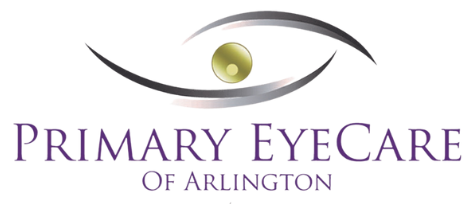Pediatric Eye Exams
Children can have eye health and vision problems, and a pediatric eye exam is essential to detect issues early in a child’s life so that they can get proper care before problems worsen.
Dr. Artee Nanji and the team at Primary Eye Care of Arlington and South Main offer pediatric eye care services. Our doctor has the experience and expertise to diagnose and treat eye health and vision problems in children.
When Should Children Get a Pediatric Eye Exam?
Children should have their first eye exam at six months, then again at three years old and before they enter kindergarten.
Once a child is in school, he or she should have a comprehensive eye exam at least once every two years if no vision correction is needed. If a child has been prescribed eyeglasses or contact lenses, then they should be examined on an annual basis or as recommended by the optometrist.
The eye exam methods our doctor uses depend on the age of the child. However, in all cases, the pediatric eye exam will include learning about their history, testing their vision, determining whether eyeglasses are needed, testing the alignment of their eyes, conducting an eye health evaluation, and if needed, prescribing eyeglasses.
Why are Eye Exams Important for Children?
It’s important for children to have their eyes examined to ensure they are healthy and that they don’t have any vision problems which may interfere with their performance in school. Learning is all about vision; in fact, up to 80% of what a child learns is presented visually. Eye exams for children assess whether they have the necessary visual skills which are essential for learning:
- Excellent vision for near, up-close work and for distance.
- Comfortable and correct “eye teaming”, which means the eyes work well together and can focus on the same place in space.
- Excellent ability to switch the focus from an object up close to an object in the distance.
- Accurate eye movement skills, such as the ability to read a line of text.
What are the Signs of Vision Problems in Children?
Kids aren’t always able to effectively communicate about their difficulties with vision, so eye health problems in children can be difficult to detect. If vision problems are left unchecked, they can progress and negatively impact your child’s life as they grow up. Some early indicators of vision problems in children include the following behaviors:
- Frequent blinking, squinting, or irregular eye movements
- Frequently turning or tilting their head
- Covering or closing one eye to see better
- Poor hand-eye coordination or motor skills
- Rubbing their eyes frequently
- Frequent headaches
- Leaning in too close to see something or read
- Learning difficulties and poor handwriting
If you observe these behaviors, they may indicate that your child has a vision or eye health problem. Please schedule an appointment for a pediatric eye exam so that the doctor can determine the cause and possible treatment options. Delaying care may cause your child more serious or even permanent damage, depending on the condition.
Comprehensive Pediatric Eye Exams at Primary Eye Care
Pediatric eye exams at Primary Eye Care of Arlington and South Main detect eye defects and vision impairment while also assessing your child’s risk for developing eye conditions later in life. Our exams are more thorough than those offered at the pediatrician’s office or schools, which screen for potential vision problems but do not diagnose or treat them.
Don’t wait until a vision problem is apparent! Get your child’s eyes checked regularly by an optometrist. Contact us today to set up your child’s eye exam in Arlington or Memphis.
Can my child wear contact lenses during sports activities?
Yes. We love one day disposable lenses for these situations.
When should my child's eyes be examined?
Children’s vision is developed at six months of age. There are programs (InfantSEE) that help to assess that everything is normal for future development. If all is normal with that examination, the next exam should be at age four.
Will sitting too close to the television set hurt my child's eyes?
Most of the time children sit close to the TV to tune everything else out. It is good to have a good distance between the object we are viewing and our eyes to ensure we are not putting undue stress on our focusing system.
Is my child likely to inherit my need for glasses?
Yes. And likely sooner. We are seeing more kids that are younger with higher prescriptions than their parents had when they were in glasses. The good news is that there are methods to slow this progression down. Talk to your doctor about Myopia Control to help with slowing down progression.
